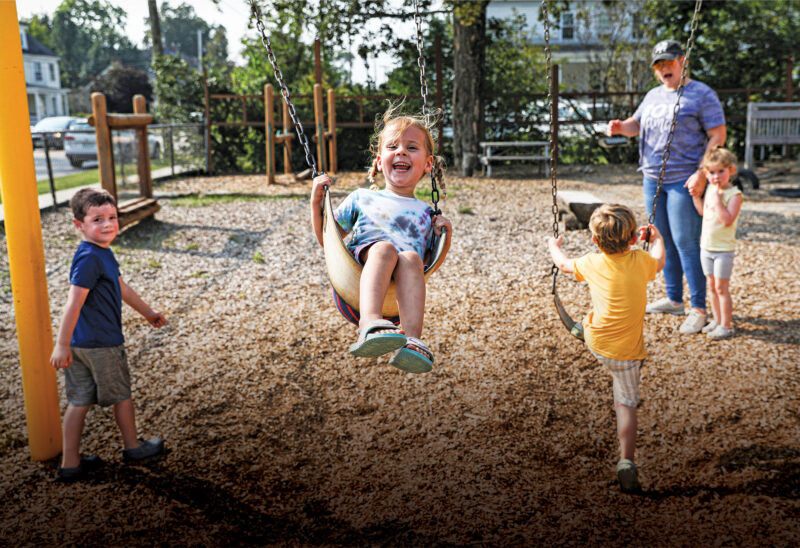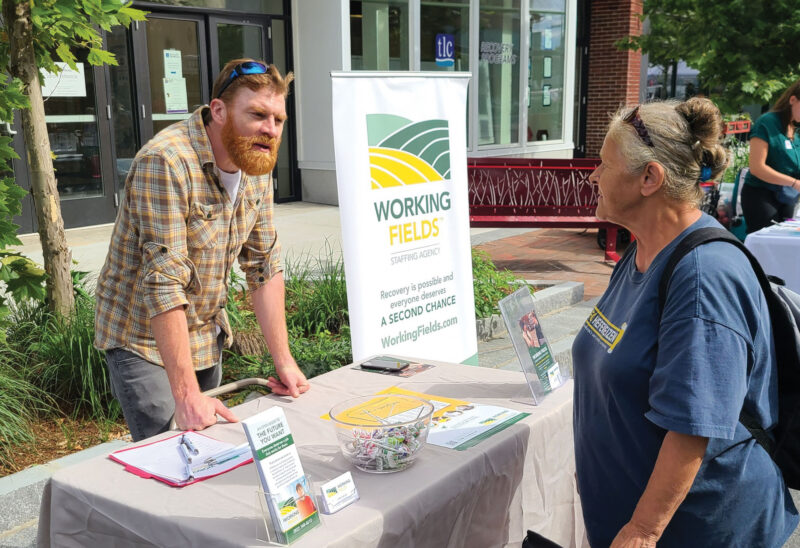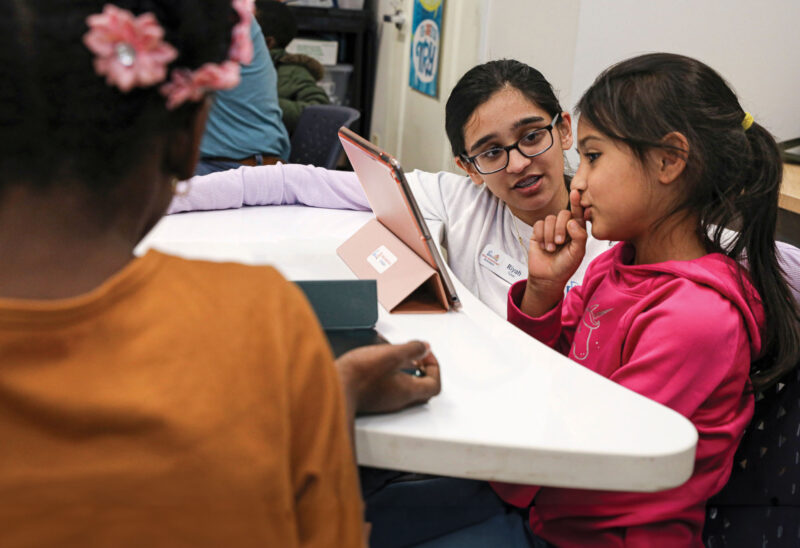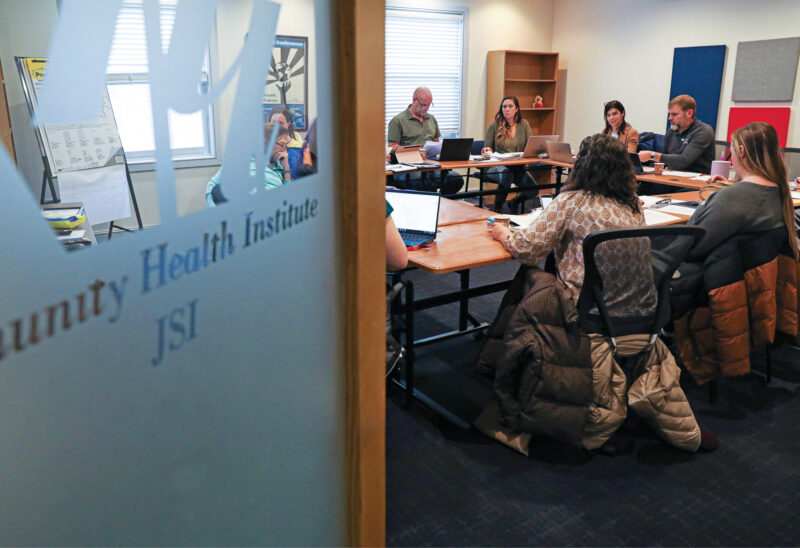On a February day when New Hampshire’s bitter cold made the national news, 90-year-old Jackie Ingerson knew she could count on the Grafton County Senior Citizens Council for a safe ride to a warm meal and friends at the Littleton Area Senior Center in Littleton.
On the same day, Elaine O’Rourke, 73, gladly ventured into the below-zero temperatures to create her own warmth with friends at a line dancing class and meal at Lin-Wood Area Senior Services in Lincoln.
For Jackie, Elaine and more than 6,000 other seniors or adults with disabilities in and around Grafton County, the GCSCC, its eight senior centers and its community partnerships offer transportation, meals, activities, health and financial guidance and companionship.
The organization offers valuable opportunities to get out of the house occasionally, with essential services that enable many to remain living in their own homes as they age.
For instance, the GCSCC is the only organization providing door-to-door transportation throughout the county, driving 91,451 miles during 10,852 trips for 593 riders in Fiscal Year 2022. It also served about 190,000 meals.
The Charitable Foundation supports the Council’s important work, most recently with a multi-year grant for operating support.
“If our services went away, it would be an enormous challenge for the people we serve,” said Executive Director Kathleen Vasconcelos. “Thousands of older adults in our area would really struggle.”
In a recent GCSCC survey, nearly all who responded said the bus rides enable them to remain in their own homes. Two-thirds of those receiving home-delivered Meals on Wheels said the same about the meals. Two-thirds of respondents said they can’t afford groceries through the month.
Jackie rides the bus from her rural home into Littleton nearly every weekday for meals and activities and for shopping, medical appointments and errands. She is not sure she’d be able to remain at home without the help.
“It would be a terrible problem,” said Jackie, who otherwise would pay someone for rides and spend much more for food. “I don’t know if I would be able to pay the taxes and the insurance and I don’t know if I could stand my own company.”
Finances aside, Jackie said connecting with people is fulfilling.
“Where would I be? I’d be right here in my living room. I’d go out to feed the birds, that would be about it,” she said. “My life would probably be dull and short-lived.”
Donald Vinton, 66, of Grafton has visited the Mascoma Senior Center in Canaan since 2004, riding the bus for meals, activities and to volunteer.
“It’s much more than a meal,” he said. “It’s people to talk to. Without it, I’d be isolated. I would have nowhere to go.”
Studies show that isolation can be harmful to seniors. Older people who are socially isolated face a 28% greater chance of developing dementia than counterparts with social connections, according to a recent Johns Hopkins study.
Isolation is a real concern, as one out of five of the GCSCC’s survey respondents said their only visitors were the Meals on Wheels volunteers, who provide food, a brief social interaction and a safety check.
“Our volunteers do the same routes regularly, so they develop a relationship with meal recipients and they know if something is wrong,” Vasconcelos said. “They would know, for example, that the person usually gets to the door right away, is well-dressed, hair brushed, looks presentable — then maybe one day, it takes longer, they are in their PJs, and their hair isn’t combed.” Volunteers notify senior center staff if they think a client needs additional assistance.
Grafton County is largely rural and mountainous, which can be isolating to residents without cars or access to affordable transportation. Its population is aging, as is the case throughout the state. Recent Census figures show New Hampshire tied with Vermont and West Virginia for second-oldest median age in the country, behind Maine.
Twenty-two percent of Grafton County’s 92,000 residents were 65 or older in 2021, slightly higher than the state’s 19 percent figure.
So, infrastructure to provide services to an aging population is critical. To meet residents’ needs, the Grafton County Senior Citizens Council operates senior centers in Lebanon, Orford, Haverhill, Littleton, Lincoln, Plymouth, Bristol and Canaan.
At the senior centers, multiple programs are scheduled around mealtime, so people can enjoy a warm meal and participate in programs including health and wellness, arts, continuing education, tax preparation and more.
The GCSCC sponsors the Grafton County ServiceLink Resource Center, which counsels several thousand people a year about long-term care, Medicare, Medicaid, caregivers and veterans’ issues. In 2022, ServiceLink saved residents who sought guidance about Medicare more than $511,000 in prescription drug costs, another way to help people remain in their own homes. The Council also sponsors RSVP’s Volunteer Center for Grafton and Sullivan Counties, offering programs including Bone Builders to help protect against fractures and Chore Corps, which helps with chores and home repairs and safety modifications.
Early in the pandemic, the GCSCC revised programs and created new ones to maintain services while in-person programs were suspended.
Meals on Wheels teams made multi-day deliveries, instead of daily trips. On days with no deliveries, the Council called to check on residents.
A new Grab & Go program enabled people to pick up hot meals at a drive-through window. New virtual activities helped residents stay in touch while avoiding potential illness.
The telephone wellness checks have continued for residents who choose not to have meals in a group. Grab & Go and virtual activities were so popular, they also have continued.
Last year, the organization served nearly 158,000 home-delivered meals to 933 people. Nearly 20,000 Grab & Go meals fed 895 people, and 803 people enjoyed more than 13,000 congregate meals.
The programs and meals have improved Jackie’s nutrition and outlook.
“Staying at home, I can get very absorbed in myself,” she said. “This way, I hear other people talk and I realize some people have problems a lot worse than mine. I’m not so bad off as I might think I am.”
Elaine discovered the GCSCC three years ago after her husband died and the pandemic began. Feeling lost, she experimented with Grab & Go meals at the drive-through in Lincoln, then picked meals up inside when the senior center reopened. It was so welcoming that she began staying for lunches and now visits three days a week for meals, volunteering and activities — including line dancing on a below-zero morning.
“It really kind of gave me a sense of purpose,” she said.








![Indrika Arnold, Senior Wealth Advisor, the Colony Group [Photo by Cheryl Senter]](https://www.nhcf.org/wp-content/uploads/2024/05/Indrika-Arnold-Hero-800x534.jpg)










